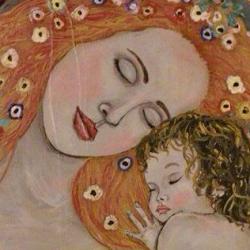In his Happiness Paradox, Ziyad Marar explores the sources of “justification.” Humiliation is a uniquely human form of suffering. How do we deal with it? Our strategies for staving off humiliation are strategies of “justification.”
Freud offers some possibilities, He “enumerates a range of ways we avoid this kind of suffering, including becoming a hermit or taking up yoga to enjoy the ‘happiness of quietness,’ sublimating instincts into getting pleasure from work (this he reserves mainly for artists and scientists), fantasy, imagination, escapism, as well as getting drunk or going mad” (69).
Preferable to all these is love: “Love is only the most magnified source of justification lying at one end of a continuum that includes affection, applause, approval, recognition, intimacy, respect, sympathy, trust, loyalty and understanding, among others. These forms of justification can only be provided by our audiences. Audiences are the ground to the figure of our identity. A proper audience can withhold justification as easily as offering it; as in a theatre or concert hall, they can cheer or jeer. To experience the lack of proper justification has its own continuum of emotion that ranges from embarrassment to humiliation” (69-70). Yet love leaves us vulnerable to further humiliations, and so can often be more problem than solution.
Marar turns to the micro-sociology of Erving Goffman to suggest another strategy: “Our self-respect is achieved through micromanaging, whether consciously or unconsciously, the impressions other people have of us” (71).
We might turn to non-human goods and goals for justification: “a great artist can feel truly justified by creating a painting, an engineer by building a bridge or an athlete by winning a gold medal, and, rightly, that the rewards of obsessive engagement with the non-human have led to the most sublime achievements of human history. But the importance of these non-human goals in modern psychology is in their satisfaction of our need to feel free rather than our need to feel justified (75).
These efforts are flawed, Marar says, precisely because they are non-human goals, and pursuing them turns us away from interpersonal contexts where we are justified. We need other people. We need their praise in order to be happy:
“If we are to be happy, we must reconcile ourselves to our need for human sources of justification and accept their potency. . . . In searching for justification, we are searching for applause. This is an extremely painful claim to accept. To crave applause is humiliating. Who wants to admit that without feeling accepted by an intimidating audience we cannot feel completely happy with ourselves? Worse still, being seen to be doing backstage work to gain applause is the best way to ensure you won’t get it. We will never satisfy our need for justification by pursuing it, and we must not be craven if we seek to be happy” (75-6).
Finally, we simply have to accept the risk of humiliation if we are going to hope for justification: “the need to feel justified like the need to be free has two sides. It expresses itself both in the yearning for intimacy, approval, applause . . . and in the fear of humiliation, rejection and shame. In order to satisfy the yearning we need to overcome the fear, to be brave enough to assert our freedom, our uniqueness, without which there is nothing to applaud” (86-7).
He concludes: “Without the approval of our fellow humans we cannot be happy – but we can never enjoy approval, intimacy, love or applause without taking the risk of being free from such craven desires” (89).
Of course, this is a psychological rather than a theological study, but it’s jarring to read a chapter on “justification” with the nariest whisper of a mention of Martin Luther. Perhaps Marar’s starting point blinds him to the possibility of a theological account:
“Many commentators, modernity’s ‘knockers,’ have felt that this loss of standards has left the subjective notion of happiness virtually empty of content, and yearn for a return to the days when we all knew our place in the order of things. Unfortunately for them, there is no way back to social mores and religious structures that once made our lives accountable. Once we tasted freedom we became addicted, and older moral codes look hopelessly unsuited to our times. The problem is that the structures have collapsed while the question they were designed to answer – How should I live? – persists. The moralistic knockers have half a point. Freedom and self-expression alone are not sufficient to describe the content of happiness today. Freedom without constraint . . . leads to meaninglessness, madness or death. Accountability has to re-enter the story, but in a way suited for our emancipated times” (66).
Perhaps, though, there are resources from those dim pre-emancipated ties that have something to teach us about justification.












